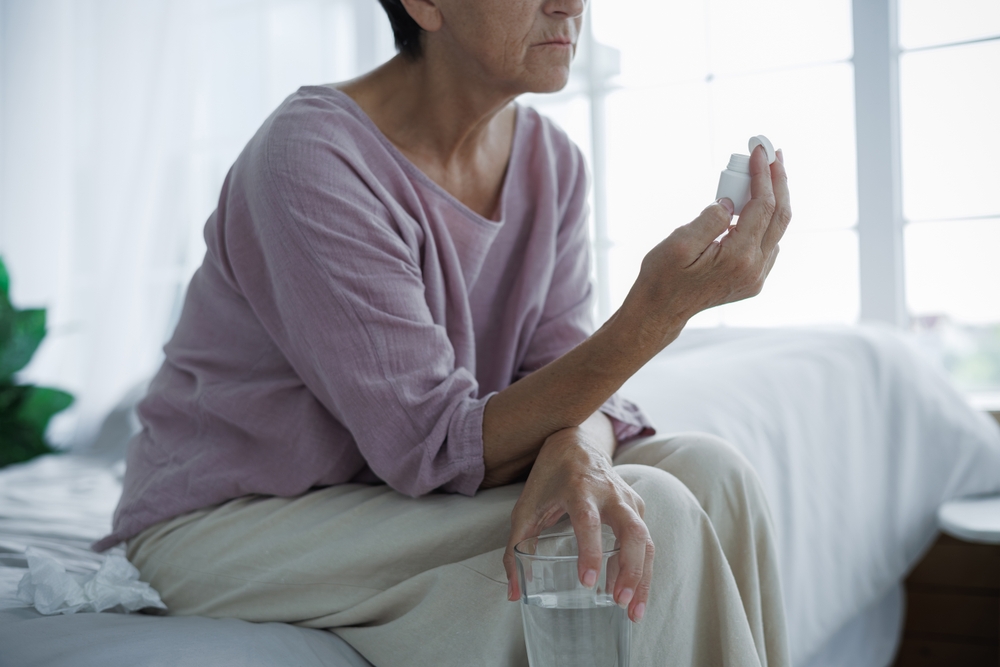Last Updated:
July 22nd, 2025
Antidepressant Rehab Treatment | What to Expect
Antidepressants are meant to ease suffering but sometimes, they can make your life even harder. Most people don’t think of antidepressants as addictive because they don’t produce a high and most people take them exactly as prescribed. But over time, your body and mind can become so used to them that giving up can be incredibly hard. Antidepressant addiction treatment gives you a safe, supported way to come off the medication, make sense of how you got here and start thinking clearly again. If you’re feeling stuck or scared, there is professional support available to help you find your way out.

What is antidepressant rehab treatment?
Coming off antidepressants is a delicate process that is a little different to recovery from other drugs. Antidepressants don’t create any kind of high and so the dependency is generally an emotional and psychological one. There are variations between different programmes and centres but treatment usually involves three phases.
These begin with antidepressant detox which is safer and more effective than quitting on your own because an experienced medical team will help you come off the drugs step by step.
Prescription drug detox for antidepressants is important but it only deals with the physical part of dependency. You then need to go on to the second stage of treatment and do internal work on how and why the addiction developed. This is done through different types of therapy, all proven to help you quit antidepressants for good.
To help with this, the best antidepressant rehab centres then provide aftercare. This keeps you connected to your support systems after you leave and may provide extra therapy and resources to smooth the transition to your new life.
Why is antidepressant rehab treatment important?
As the effects of antidepressants fade, emotions that have been buried, blurred or numbed by prescription drug addiction can begin to rise to the surface. Many people use antidepressants to help them get through a tough time but this can also shut the door on parts of yourself that were too painful to face.
In antidepressant rehab treatment, you get the chance to open that door again with professional support. Whether it’s past trauma, long-standing depression or a fear of coping without medication, antidepressant rehab allows you to explore it with care and compassion.
This stage can feel raw and you may be overwhelmed by the intensity of your emotions. That’s not a setback but is a sign that your nervous system is waking back up. Antidepressant rehab is about learning how to be with those emotions rather than escaping them so you can begin to build a life where you are in control again.
Options for antidepressant rehab treatment
In the UK, you can choose either free NHS treatment or private antidepressant rehab. Both have their advantages and disadvantages so it is important to make a careful decision.
Private antidepressant rehab usually takes place at a residential treatment centre. You will live there 24/7 and undergo detox and rehab therapy in the same place. This means there is no gap in your treatment and your treatment team will be able to build a full picture of how antidepressant addiction is affecting you. It gives you the chance to take a break from everyday life and take all the time you need to get better.
NHS treatment is usually offered on an outpatient basis where you go to a local clinic for weekly therapy. This is usually group therapy, whereas private antidepressant rehab also offers one-to-one therapy. NHS rehab treatment is less immersive and while it can be effective, it works best if your dependency is not so long-standing and you have a strong support system.
Free local services like Narcotics Anonymous can also play a big part in recovery, particularly in your post-rehab life. They can help you complete the final stages of a 12-step programme you began in rehab and introduce you to friends and sponsors to support your sobriety.
Therapies used in antidepressant rehab treatment
The best antidepressant rehab programmes bring together different therapies and experiences for whole-person healing and recovery. They help to break the link between mental health and addiction to give you a better chance at a happier future. Some of the most important approaches include:
- Individual therapy where you can speak openly about things you may have kept bottled up for years
- Group sessions where shared stories and honest conversations can bring comfort and connection
- Targeted therapies like CBT and DBT that teach you new skills for managing emotions and breaking old habits
- Family-focused therapy to open up lines of communication and work through past hurt
- Motivational Interviewing to help you stay clear on what matters and why you want a different future
- Gentle, creative practices like art, yoga and guided meditation to help settle your mind and explore feelings in new ways

What does the daily antidepressant rehab treatment process involve?
A regular day in private antidepressant rehab starts with breakfast and then either private or group therapy sessions. Breakfast and other meals are communal occasions and are great for building a community in rehab so everyone gets along.
In the afternoon, you will then have more therapy sessions, holistic activities and even fun things like nature walks or chances to exercise. The evening starts with dinner where you can all relax and socialise and then there is usually free time in the evening.
Throughout the day, there will be lots of time to rest and reflect to keep you fresh and motivated for the hard work you are putting in.
Life after antidepressant rehab treatment
Aftercare is what helps you stay steady when the structure of prescription drug rehab is gone and you are figuring out how to live differently in your everyday world. Here are a few pillars of strong aftercare:
1. Antidepressant relapse prevention planning
Before you go, you will work through what might trip you up. This may be a high-pressure environment, old routines or isolation but you’ll build a plan with tools and reminders that stop you from relapsing.
2. Further therapy
Ongoing therapy sessions through your rehab centre or a personal therapist help you process any obstacles that arise in your new life. You can check in with yourself, get advice and have a safe place to discuss your progress.
3. Alumni resources
Many centres offer alumni meet-ups or ongoing groups. This is a great opportunity to make friends, take part in some fun events and join a supportive recovery community.
Begin antidepressant addiction treatment today
If you’re feeling unsure, scared or just tired of doing this alone, Addiction Helper is here to talk. We can offer expert guidance for whatever comes next. Reach out today and begin the process of changing your life.
Our compassionate team are ready and available to take your call, and guide you towards lasting the lasting addiction recovery you deserve.
Frequently Asked Questions
(Click here to see works cited)
- Gabriel, Matthew, and Verinder Sharma. “Antidepressant discontinuation syndrome – PMC.” NCBI, https://www.ncbi.nlm.nih.gov/pmc/articles/PMC5449237/. Accessed 11 June 2025.
- Jauhar, Sameer et al. “Antidepressants, withdrawal, and addiction; where are we now?.” Journal of psychopharmacology (Oxford, England) vol. 33,6 (2019): 655-659. doi:10.1177/0269881119845799
UK-Rehab. “Addiction To Antidepressants | UK Rehab.” UK-Rehab, https://www.uk-rehab.com/drug-addiction/antidepressant/. Accessed 11 June 2025. - NHS Business Service Authority. “NHS releases mental health medicines statistics for 2022/2023 in England | NHS Business Services News.” NHS Business Services News, 6 July 2023, https://media.nhsbsa.nhs.uk/news/nhs-releases-mental-health-medicines-statistics-for-20222023-in-england. Accessed 11 June 2025.

